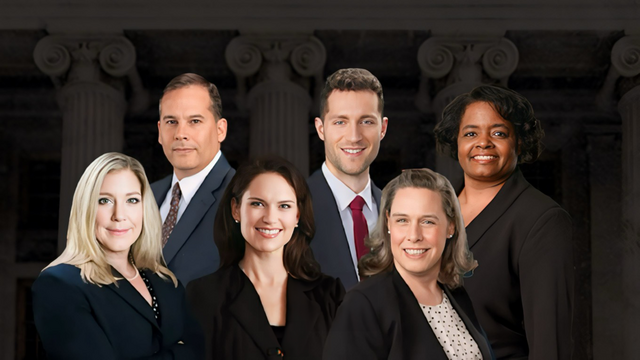Virginia Gun Charges
The most common Virginia gun charges tend to be possession of a concealed weapon, or attempted possession of a firearm by a felon. While both charges are not good, attempted possession/possession of a firearm by a felon is a felony charge in and of itself. Felony gun charges can have severe penalties, and can negatively impact someone’s personal and professional life, as well as their civil liberties. With so much on the line, your best course of action is to contact a Virginia gun attorney as soon as possible, if you have been charged with a gun offense. Speak to an attorney today and know that you are in good hands.
Possession Charges
If a person is charged with illegally possessing a firearm, such as if they are a convicted felon in possession of a firearm, the government must prove that there was actual or constructive possession in the case.
Actual possession is where an individual is holding the gun, it is in a holster on their belt, in a backpack, they are carrying, or somewhere else on their person. Constructive possession is more difficult for the government to prove. They must prove that the person had the weapon within their control and that they are aware that it was in there.
For example, if a person is living in a home where there are multiple occupants and the police find a gun in that home, they would need to prove that the person, at some point, exercised some control over that weapon and that they were aware that it was there. Absent those levels of proof, the government is going to have a very difficult time sustaining any conviction for possession in a Virginia gun charge.
Conspiracy to Violate Virginia Gun Laws
Conspiracy generally means that a person has entered into an agreement with another person to commit a crime. Conspiracy to violate gun laws can include circumstances where a person who is prohibited from possessing a firearm conspires with another person to obtain a firearm for that felon.
A common example would be if Person A is a convicted felon and is prohibited from acquiring a weapon, they may ask Person B, who is not a convicted felon, to purchase a gun on their behalf. If that person agrees to do so, then that is a conspiracy to violate the gun laws in Virginia.
Being Charged with Other Offenses
It depends on what the gun charges are but, usually, a person does not face additional offenses when violating a gun law in Virginia. If a person is a convicted felon and they go to a store that sells weapons and attempts to purchase a firearm, they are required to fill out a form that indicates their eligibility. If they fill out that form in a way that is not truthful, then filling out that form can constitute a separate and distinct offense aside from the attempted possession of a firearm by a felon.
Under that circumstance, an individual can be charged with another offense on top of the Virginia gun law they violated. Other gun-related charges are the use of a firearm in the commission of a felony. If a person is using a firearm while committing a felony, there has to be another felony attached to that. Those are some of the ways where a person can be charged with other offenses alongside gun charges in Virginia.
Mitigating Gun Charges
Mitigation means that the attorney is assuming that the government is able to prove their case, and so they ( the lawyer) are trying to introduce evidence that softens the client’s landing. Meaning, they had reasonable belief that they were, in fact, eligible when they were not, it was a case of mistake or misinformation. Those things do happen and that kind of evidence is certainly useful when negotiating an outcome with the prosecutor.
Sometimes Virginia gun charges are dropped. Sometimes, it is an honest mistake and prosecutors are understanding about all of that. Other times, the prosecution and the court might be less willing to drop charges, but every case has a set of facts and circumstances. There are many human variables that go into deciding whether to drop charges or not, such as the reactions of police officers and reactions of prosecutors themselves to the facts that they hear.
How a Lawyer Can Mitigate Charges
A savvy lawyer knows all the players that are involved in the case and will know how to talk to those players in ways that can help get them a little bit less agitated about your conduct. Typically an attorney will talk to the people involved, and try to spin the facts in such a way that the prosecutor and the police are able to understand the facts from your point of view, and what you thought was really going on. Very often, these are truly innocent mistakes.
Your lawyer can try to have you do some proactive things ahead of time before you go to court, in order to show that you are sorry for your transgression. By doing community service, and taking gun safety courses, you can make a proactive effort to show true remorse. These things show the prosecutor that you are taking these Virginia gun charges seriously and that you are not trying to get off without facing any consequences. If you have been charged with a gun offense, contact a skilled Virginia gun attorney that can advocate for you.




